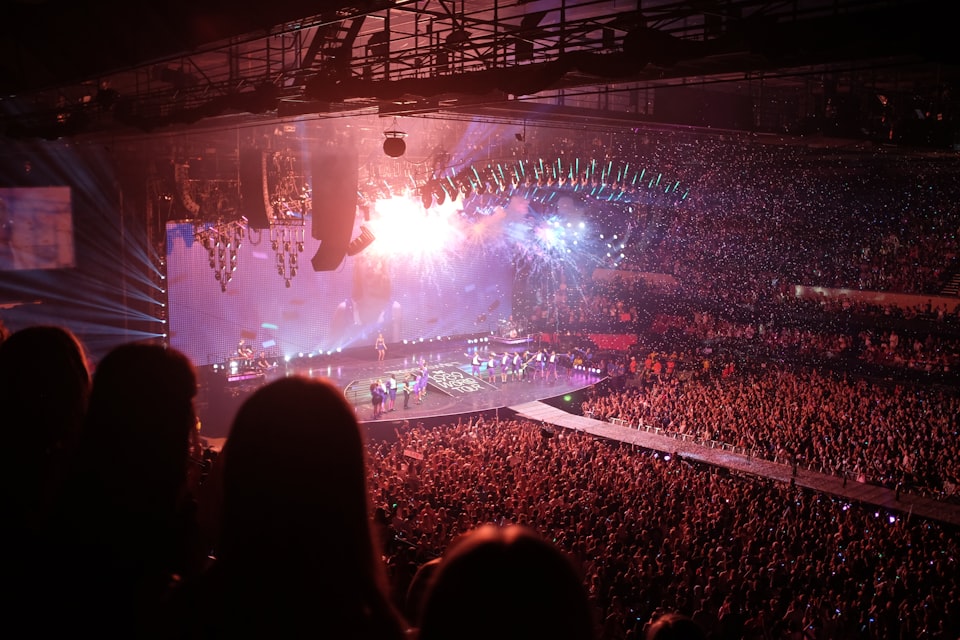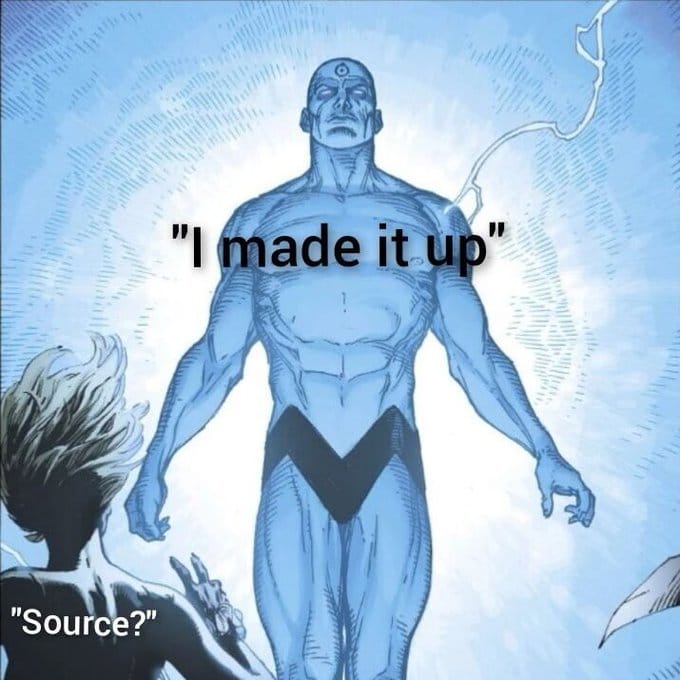A Swift loss

If you're reading this from Melbourne or Sydney then there's a chance that either you or someone you know will have attended, or plans to attend, the Taylor Swift concerts this month.
Around 800,000 people queued up online last year to buy just 200,000 seats ahead of the Melbourne sale, which gives you some idea as to her popularity. While some will have inevitably travelled from regional Victoria or interstate, Greater Melbourne itself is home to around 4 million people aged 15+, so at one point nearly a quarter of all Melburnians were in the queue. Demand was so strong that Swift added an additional show to both Melbourne and Sydney.
If you read the media articles swooning over the mega event, you'll hear that Taylor Swift's presence in this country will bring immense benefits to us all, well beyond her music and entertainment value. For example, here's tourism, hospitality and event management senior lecturer at La Trobe University, Paul Strickland:
"We can expect this will inject more than $1.2 billion into the local economy... This is exactly what the Andrews government wanted. No one's talking about cancellation at the Commonwealth Games anymore."
$1.2 billion! Victoria's annual GSP is around $570 billion, and Treasury is forecasting that to grow by 1.5% this financial year. By Stickland's estimate, Swift alone will be responsible for 14% of Victoria's economic growth this year!
If that sounds a bit far-fetched to you, then you're on the right track. To his credit, Strickland was quick to hint that that there's a different between a gross effect and a net effect, even if it didn't seem to affect his estimate:
"Teenagers are putting all their eggs in one basket and using up Christmas and birthday money to see Taylor. Some of the tickets go for $1,200. They made them use all their incentives, begging their parents to buy a ticket for the year, which means they're not going to other things. So we do know that smaller events are suffering because they're not going to them, especially in regional locations."
Correct. Economic impacts are not the same as net benefits.
Looking past the smoke and mirrors
The great economist Frank Knight once disparaged that "any politician can always find an 'economist' to endorse any position or policy he sees fit to advocate, and perhaps this is the proper function of our 'science' in a democracy".
The good news is that, despite Knight's fears, those 'economists' are almost entirely confined to consultancies. The bad news is that politicians spend a lot on consultants and the media parrots these "independent" studies without question, which is how we end up with these aggressively optimistic economic impact estimates. For example, the NSW Treasurer made this claim in Parliament:
"It [the Swift tour] is projected to inject upwards of $20 million into the economy, not taking into account expenditure from local attendees. Long story short, it will provide a significant benefit to our economy, supporting thousands of local jobs and helping to boost our live music and entertainment scene."
Interest groups are even more optimistic. Business Sydney claimed Swift would generate "at least $113 million for Sydney", while Venues NSW predicted that Swift would create "an economic windfall of more than $140 million to the national economy".

But if one looks at the academic literature on major events such as Taylor Swift concerts, it's almost unanimous in its pessimism; and for good reason! As Strickland alluded to above, much of the consumer spending associated with concerts comes out of the entertainment budgets of local residents. When people attend a Swift concert, they reduce their spending on other local activities. Additionally, Swift and many of the people associated with organising her tour do not live in Australia, so the multiplier will be lower than when people spend their hard-earned on other, local activities – in fact, spending on a Swift concert could even reduce local income.
Then there's the NSW Treasurer's local job claim, which will almost certainly be counting existing employees that are simply being "redeployed to meet the temporary demand created by the event", or people who participate "at the expense of some other activity they would otherwise have undertaken". Not real, long-term jobs. Who in their right mind would add to their full-time employee numbers for a one-off, 4-day event?
Then there are the opportunity costs of the Swift concert. Modern methods that consultants use to evaluate these events, such as with input-output tables or computable general equilibrium (CGE) models, often fail to "take full account of the opportunity costs of resources used to deliver an event... [i.e.,] what people or a society give up by investing capital and employing workers in event-related activities as opposed to the best alternative".
Coates and Humphreys (2008), who analysed the peer reviewed literature on "the economic impacts of stadiums, arenas, sports franchises, and sport mega-
events", concluded that economists "consistently found no substantial evidence of increased jobs, incomes, or tax revenues for a community associated with any of these things".
How to ensure a Swift loss
Frontier Touring – the group that organised Swift's tour down under – estimated that the four concerts in Sydney would attract "60,000 interstate visitors and 6,000 international visitors", so around 20% of the total attendance. That's similar to the around 30% of ticket sales attributed to interstate or foreign visitors at the recent Coldplay concert in Western Australia, so 20-30% seems a reasonable ballpark figure.
But while international visitors – provided they weren't intending to visit Australia at some point anyway – bring true benefits, interstate visitors do not; they simply shift activity around. For example, the Victorian Auditor General found that the 2005 Melbourne Grand Prix, after accounting for the "substantial shift of resources and economic activity from the rest of Australia to Victoria... generated a mere $1.9 million increase in GDP in Australia as a whole". Once it added opportunity costs, its calculations showed that even Victoria recorded "a net loss on the event (costs exceed benefits) of $6.7 million".
The Victorian and New South Wales governments, as far as I can tell, are not directly subsidising Taylor Swift's visit. However, there are indirect subsidies, such as the extra effort required from road agencies, police and emergency services. On top of that, we also need to count the disruption to business and resident lifestyles, such as through the extra traffic congestion, litter, noise, crowds, and possible property damage.
Then there's Swift herself, who is reported to be making "$5m for each of her seven concerts in Australia", after paying for transport, accommodation, production and publicity, venue hire and management fees, and the ticketing. Almost all of that – minus the local transport, accommodation, and venue hire – will be going straight overseas.
David Herlihy, a Northeastern University Teaching Professor and Music Industry Program Coordinator, has previously put Swift's costs at around 25% for each concert. So if she's making a total of $35 million, that's another $8.75 million gone, bringing the total exodus of local Aussie dollars to around $44 million.
Swift may well bring net benefits to Victoria and New South Wales, depending on how many interstate and overseas visitors show up. But for the country as a whole, Swift's concert almost certainly creates a net economic loss.
It could be even worse
Another artist to grace our shores recently was the famed 90s/naughties band Coldplay. While the Western Australian government has not disclosed the exact amount it spent to bring them 'exclusively' to Perth – only for Coldplay to announce another tour to Sydney and Melbourne almost as quickly as they had departed – it was reportedly "eight figures" for two concerts.
I did a little sleuthing, and according to Hansard the WA government added an additional $10 million to its major events budget ahead of Coldplay's arrival. It then claimed the concerts would "inject $20 million into the economy and create jobs", and that:
"We try to work on a KPI of around two dollars coming into WA for every dollar spent."
To come up with estimated benefits of $20 million for WA, the government would have had to make some bold assumptions. I'm going to spitball here, but they may have done something like assume that all of the estimated 36,000 interstate/overseas visitors:
- travelled to Perth specifically for Coldplay, i.e., they weren't in town for some other reason (work/holiday);
- weren't planning to visit Perth at some future date anyway and simply pulled their trip forward;
- spent an average of $550 during their visit (with a spending multiplier of 1.5 * 36,000 people * $550 - $10 million subsidy = $20 million), excluding the cost of attending the concert itself, as ticket sales go straight to Coldplay;
- ignored opportunity costs and the impact of local spending shifting from activities with a higher local multiplier to the Coldplay concert; and
- ignored the 84,000 locals * $183 (my guesstimate of the average ticket cost) = $15 million in ticket sales that were sucked straight out of local WA pockets and sent to Coldplay, Ticketmaster, promoters, vendors, etc.
I would check my figures against the government's but for some reason they've refused to release them; make of that what you will. But it was almost certainly a net welfare loss for the people of WA, and definitely a net loss for Australia as a whole.
Facts won't stop them
Governments will forever cite benefits and try to ignore costs when major events come to our shores. Why would they do anything else? It's easy for the general public to see the excitement, hustle and bustle of activity in local restaurants and bars in the lead-up to the event, not to mention the euphoric media coverage. That must be generating economic activity!
What they don't see is that most of that activity is not 'new' but has merely been redistributed from other parts of the city or country. It's money people are not spending in other parts of Melbourne, Sydney, or other cities in Australia if they flew in for the concert.
On this I side with the great Adam Smith, who acknowledged the importance of the arts in uplifting society and improving people's quality of life. But he stopped short of calling for government subsidies, arguing that governments should only leave people free to read, watch or listen to whatever they so desire:
"The state, by encouraging, that is by giving entire liberty to all those who for their own interest would attempt without scandal or indecency, to amuse and divert the people by painting, poetry, music, dancing; by all sorts of dramatic representations and exhibitions, would easily dissipate, in the greater part of them, that melancholy and gloomy humour which is almost always the nurse of popular superstition."
By all means, go and enjoy Taylor Swift. But don't buy into the government's 'economic impact' spin and fool yourself into thinking you're doing the economy any favours!

Member discussion